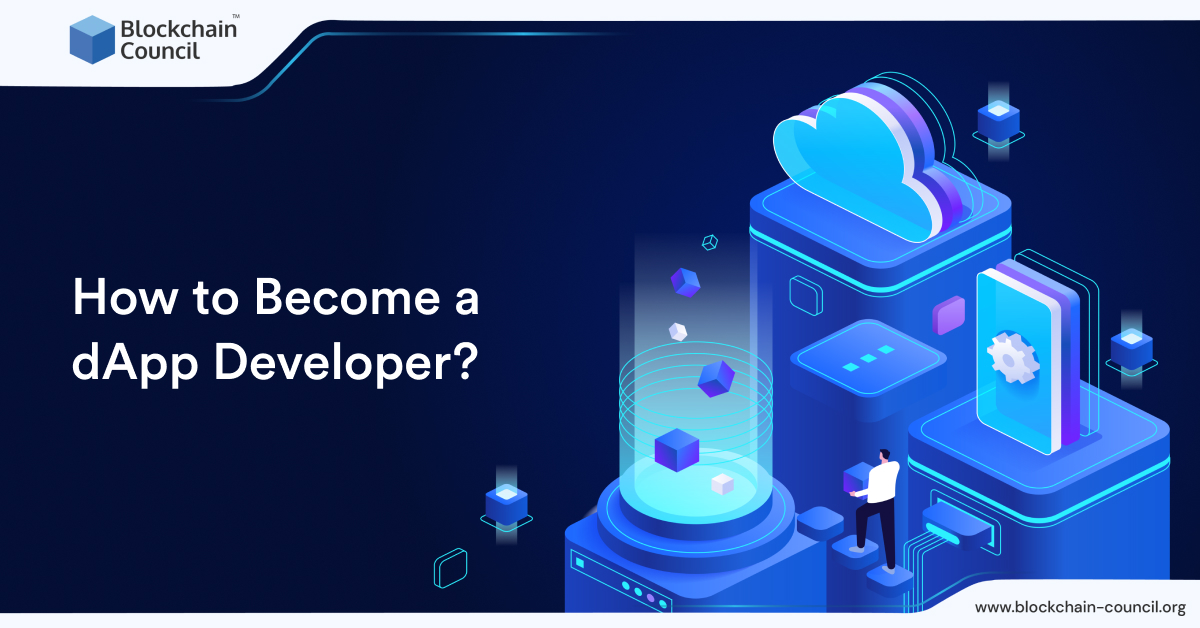
- Blockchain Council
- February 18, 2025
In the ever-evolving world of technology, a Full Stack Developer plays a pivotal role in the development and maintenance of web applications. These developers are versatile professionals skilled in both front-end (client-side) and back-end (server-side) technologies, making them integral to the creation of seamless digital experiences. Full Stack Developers bridge the gap between user interfaces and databases, ensuring a cohesive and functional web application.
A Full Stack Developer is a highly skilled programmer proficient in both the front-end and back-end aspects of web development. They handle everything from designing the layout and user experience (UI/UX) of an application to implementing the database, server, and business logic that power it. Their ability to work across the entire technology stack (hence the term “Full Stack”) makes them invaluable to development teams.
As a Full Stack Developer, the professional is responsible for ensuring that the front-end seamlessly interacts with the back-end to provide a flawless user experience. They also need to be well-versed in technologies that allow them to build both the visual components of a website and manage the data, logic, and architecture behind it.
Skills Required for Full Stack Development
A Full Stack Developer must be well-versed in a wide range of front-end and back-end technologies. The most essential skills include:
Front-End Skills:
- HTML: The foundation of web pages.
- CSS: Styling web pages.
- JavaScript: For interactivity and dynamic content.
- React.js, Angular, Vue.js: JavaScript frameworks for building modern user interfaces.
Back-End Skills:
- Node.js: A JavaScript runtime for server-side development.
- Python: Popular for back-end development using frameworks like Django and Flask.
- Java** and Ruby: Often used in large-scale applications.
- PHP: For dynamic content and server-side processing.
Databases:
- SQL: MySQL, PostgreSQL.
- NoSQL: MongoDB for unstructured data.
Version Control:
- Git: Essential for code management and collaboration.
The role requires proficiency in problem-solving, logic, and algorithms to ensure the smooth operation of the entire system.
Front-End vs Back-End Development
While both are vital to a Full Stack Developer’s role, it’s important to differentiate between front-end and back-end development:
- Front-End Development focuses on the user interface and user experience. This includes everything the user interacts with directly on the website or application.
- Back-End Development deals with the server, database, and application logic that process and store data, ensuring that the front-end and back-end communicate effectively.
A Full Stack Developer integrates both front-end and back-end components to ensure the application functions as intended.
Full Stack Development Frameworks
| Framework | Description | Key Features | Best for |
| React.js | Front-End Framework | Component-based, Virtual DOM | Web apps with dynamic interfaces |
| Node.js | Back-End Framework | Asynchronous, Event-driven | Scalable applications |
| Django | Back-End Framework | Python-based, Rapid development | Full-stack Python development |
Full Stack Developers often use frameworks to streamline development. These include:
Front-End Frameworks:
- React.js: A JavaScript library for building interactive UIs.
- Angular: A platform and framework for building single-page applications.
- Vue.js: A progressive framework for building UIs and single-page applications.
Back-End Frameworks:
- Node.js: A JavaScript runtime for building scalable server-side applications.
- Express.js: A Node.js framework for building web applications.
- Django: A Python framework known for its speed and scalability.
- Flask: A lightweight Python web framework for small to medium applications.
These frameworks help developers save time and resources while ensuring the scalability and maintainability of web applications.
Essential Tools for Full Stack Developers
| Tool | Category | Purpose |
| Git | Version Control | Code management and collaboration |
| MongoDB | Database | NoSQL database for scalable apps |
| Docker | Deployment | Containerization for consistent deployment |
Full Stack Developers rely on several tools to streamline development, version control, and deployment:
- Code Editors: VS Code, Sublime Text, and Atom are commonly used for writing code.
- Database Management: Tools like MongoDB, MySQL, and PostgreSQL help manage data.
- Deployment Tools: Docker, Kubernetes, and Jenkins are used to containerize applications and deploy them consistently.
- Version Control: Git and GitHub are essential for collaboration and code management.
Job Responsibilities and Career Path of Full Stack Developers
Full Stack Developers have a diverse set of responsibilities, including:
- Designing and building both the front-end and back-end of web applications.
- Collaborating with designers, developers, and other stakeholders to create seamless user experiences.
- Ensuring the application runs smoothly by managing server-side data and databases.
- Troubleshooting issues and providing solutions.
As technology continues to evolve, Full Stack Developers can specialize in areas such as Blockchain, AI, or Cloud Computing, which offer a broad range of career opportunities and advancement.
Full Stack Developer Salary and Job Market
The demand for Full Stack Developers is growing across industries like Blockchain, AI, and Web Development, contributing to competitive salaries. Depending on factors such as location, experience, and company size, Full Stack Developers earn a broad salary range:
- Entry-level: ₹6,00,000–₹10,00,000 per year.
- Mid-level: ₹10,00,000–₹20,00,000 per year.
- Senior-level: ₹20,00,000–₹40,00,000 per year.
The job market is competitive, but the growth of industries like Blockchain and AI has significantly increased opportunities for skilled Full Stack Developers.
How to Become a Full Stack Developer
To become a Full Stack Developer, individuals can pursue:
- Education: A Computer Science or Software Engineering degree.
- Bootcamps: Short-term coding bootcamps.
- Self-learning: Many developers are self-taught through online resources and projects.
Additionally, earning certifications can significantly boost a developer’s career. Some highly recommended certifications include:
- Certified Blockchain Expert™ (CBE) from Blockchain Council.
- Online Degree in Artificial Intelligence from Blockchain Council.
Full Stack Developer vs Software Engineer
While Full Stack Developers focus on both the front-end and back-end, Software Engineers might specialize in one area or work on the design, development, and maintenance of software systems. Software Engineers may not always work with the entire stack, whereas Full Stack Developers are required to have knowledge of both.
Certifications to Boost Your Full Stack Developer Career
To enhance their careers, Full Stack Developers should consider obtaining industry-recognized certifications:
- Certified Blockchain Expert™ (CBE) from Blockchain Council helps developers learn about Blockchain technology.
- Online Degree in Artificial Intelligence from Blockchain Council provides in-depth knowledge of AI and its integration with Full Stack development.
- Certified Node.JS Developer™ from Global Tech Council, ideal for developers working with JavaScript-based back-end solutions.
- Certified React Developer™ from Global Tech Council, enhancing skills in building front-end applications.
- Certified SEO Expert® and Certified Instagram Growth Expert from Universal Business Council, focusing on optimizing websites for search engines and growing online presence.
Conclusion
A Full Stack Developer is an invaluable asset in today’s digital world, equipped with the skills to handle both front-end and back-end development. The demand for such versatile professionals is growing, especially in emerging fields like Blockchain and AI. With the right skills, tools, and certifications, developers can build a rewarding and long-lasting career.
For those looking to accelerate their careers, certifications like Certified Blockchain Expert™ (CBE) and Online Degree in Artificial Intelligence from Blockchain Council are excellent starting points. Expanding expertise with Node.js and React certifications can also help developers stand out in a competitive job market.





































































 Guides
Guides News
News Blockchain
Blockchain Cryptocurrency
& Digital Assets
Cryptocurrency
& Digital Assets Web3
Web3 Metaverse & NFTs
Metaverse & NFTs
